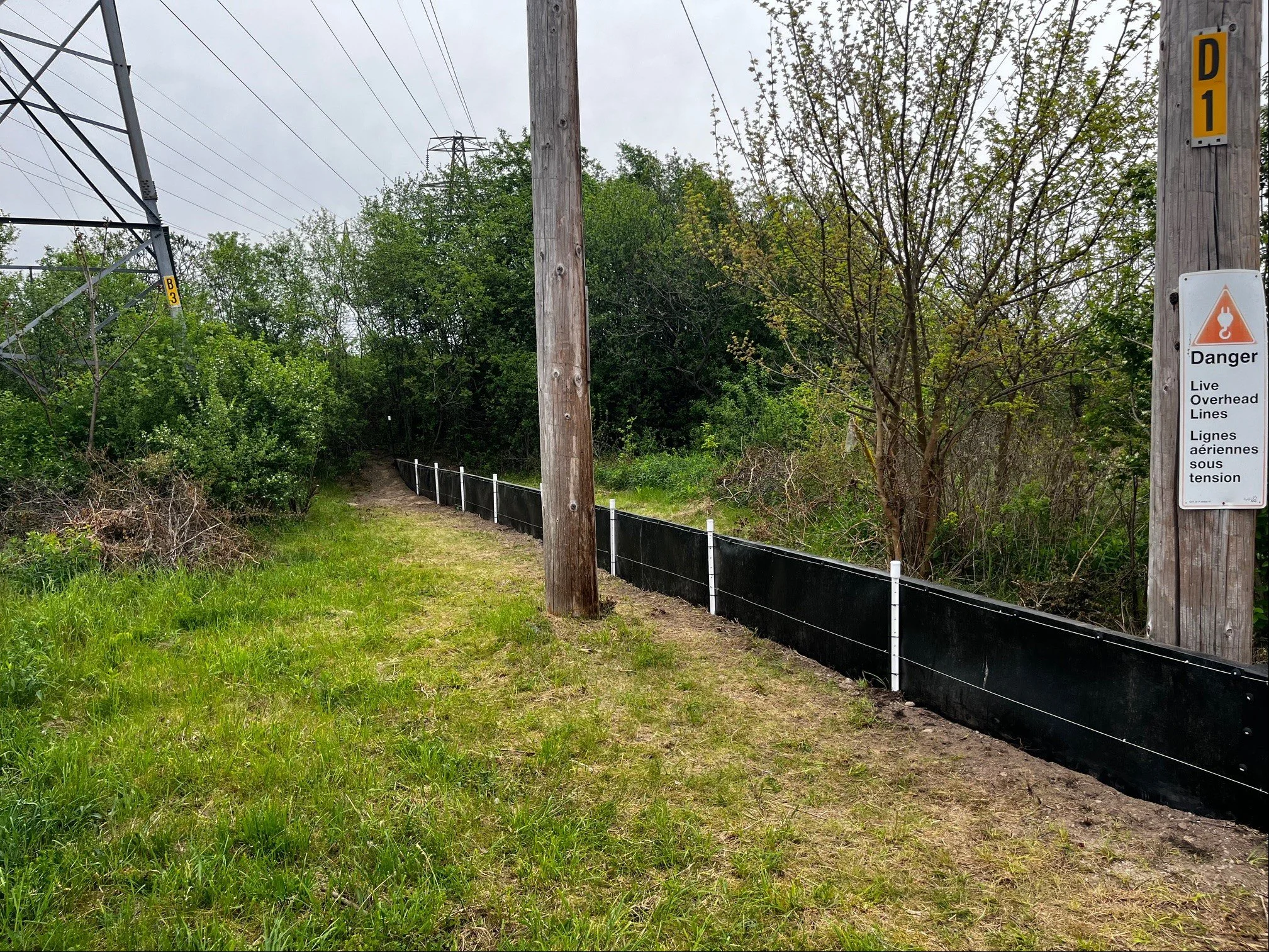
Tortoise Fencing
Animex wildlife fencing is designed and tested to control tortoise movement and exclude them from unwanted or dangerous areas. It optimizes natural reptile behavior to encourage safe and fast movement away from the fence line and, unlike mesh fencing, inhibits climbing and entanglement.
Tortoise exclusion fencing
Threatened Mojave Desert Tortoises (Gopherus agassizii) and related species face major risks from vehicle collisions, entrapment on construction sites, and expanding solar developments in desert habitats. Exclusion fencing can reduce these dangers, but some tortoises struggle to adapt and may overheat as they pace along barriers in hot weather.
When designed and installed correctly, fencing combined with underpasses can lower mortality without severely disrupting life cycles. Poorly specified fencing can fail, as mesh designs in Nevada corroded within a few years, harmed other wildlife, and caused habitat damage during installation.
Fencing can also support population assessments before new construction begins.
IMAGE: White Animex fencing used to control Desert Tortoise movements during population surveys in the Mojave desert USA.
Top 3 tortoise species Animex is commonly used for:
Texas tortoise
Desert tortoise
Gopher tortoise
Desert tortoise Gopherus agassizii
Gopher tortoise Gopherus polyphemus
Texas tortoise Gopherus berlandieri
Hermann’s tortoise Testudo hermanni
Marginated tortoise Testudo marginata
Bolson tortoise Gopherus flavomarginatus
Leopard tortoise Stigmochelys pardalis
Yellow-footed tortoise Chelonoidis denticulatus
and more…
Height
40in is the product height most commonly used with tortoises
Standard above-ground installed height 22in / 550mm (with anti-climb and anti-dig lips)
We have various fencing products suitable for tortoise
Temporary
Recommended for short-term projects between 1-5 years but has an anticipated lifespan of 25 years.
Guide Price: USD $4 per ft / CAD $18.50 per m
Semi-permanent
Recommended for long-term projects of approximately 15 years but has an anticipated lifespan of 50 years.
Guide Price: USD $7.50 per ft / CAD $37 per m
Permanent
Recommended for long-term projects of approximately 25 years but has an anticipated lifespan of 50 years.
Guide Price: USD $30.50 per ft / CAD $153.50 per m
Guide prices are based on Animex fencing material and standard fixings and fasteners. This does not include support posts or installation. AMX-48 or a smaller customized, unlisted product may be more appropriate for some projects. Please contact us if you have any concerns or questions about the height or type of fence that is best for your project.










